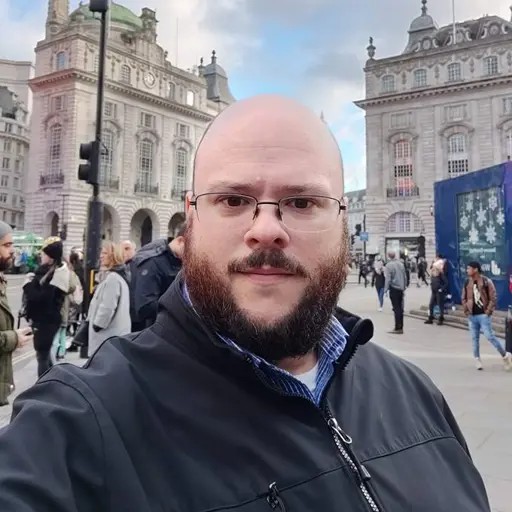Chalmers is organizing the 2025 WASP Software Engineering and Technology Cluster Workshop. This is an exciting opportunity to hear about the research being conducted by world class leaders in the software engineering field - both internationally and within Sweden - and to network, find new collaborations, and more!
Overview
- Date:Starts 11 September 2025, 12:00Ends 12 September 2025, 17:00
- Location:Rum Svea 130, Chalmers Lindholmen
- Language:English
Please feel free to join us for any part of the program.
This workshop is open to anyone, so feel free to share this with both academic and industrial colleagues.
Agenda
11 September
12 September
Keynote Speakers
September 11 13:30 - 15:00: Building and Evaluating AI-Powered Apps: Challenges, Lessons, and Future Research Directions
Chris Parnin, Principal Researcher, Microsoft Research
Abstract: The integration of advanced AI, particularly Large Language Models (LLMs), into software products is transforming how users interact with technology and how software is built. Moving beyond button clicks, a user can now expect to communicate with software using natural language—e.g., “I have extra vacation days to use up. Go ahead and create an OOF event for every Friday without any scheduled team meetings for every remaining vacation day”—and expect it to work. Traditional software architectures were not designed to handle such open-ended user interactions, introducing unprecedented challenges for software engineers. This talk draws on interviews with over 50 practitioners and a survey of 332 professionals to discuss pain points, challenges, and emerging solutions. It also connects these challenges to experiences building product Copilot at Microsoft, including Visual Studio and Office products. Finally, it explores the challenges of evaluating AI-powered software, including the role of graders and LLMs-as-a-judge in task evaluation. This talk offers a comprehensive overview of the challenges, research opportunities, and actionable strategies for shaping the future of robust, user-centric AI-powered systems.
Biography: Dr. Chris Parnin’s research spans developer productivity, cognition and learning, and automated infrastructure. He has published over 90 papers, received five SIGSOFT Distinguished Paper Awards, a 10-Year Impact Paper Award, a Google Faculty Award, and an NSF CAREER Award. His work has been featured in hundreds of international news articles, magazines, and frequently discussed in industry forums. Currently, Dr. Parnin leads research efforts at Microsoft focused on building and evaluating Copilots for Visual Studio and the Office Suite. His experience also includes serving as a tenured professor at NC State University, contributing to Microsoft Research's Human Interactions in Programming group, conducting field studies with ABB Research, and over a decade of professional programming in the defense industry. Dr. Parnin has collaborated with industry partners to bridge research and practice, including developing mentorship programs for Stack Overflow, creating anxiety-reducing features for CoderPad, and advancing equitable hiring solutions with Byteboard. He also co-organized five Continuous Deployment Summits, hosted by leading companies such as Facebook, Netflix, Google, Microsoft, and Twitter. These summits fostered collaboration and innovation in continuous deployment practices, resulting in impactful publications and educational resources for students and professionals.
September 12th, 9:00 - 10:30: Beyond Autocomplete: Towards Effective Human-AI Interaction in Software Engineering
Christoph Treude, Associate Professor, Singapore Management University
Abstract: Large Language Models (LLMs) and multi-agent AI systems are rapidly becoming part of software engineering workflows, from generating code suggestions to reviewing pull requests and annotating datasets. Yet, their impact depends not just on raw model capabilities, but on how we design the interactions between humans and AI. In this talk, I will explore what it takes to get these interactions right, drawing on a series of empirical studies we have conducted over the last few years. I will discuss how developers' adoption of AI-generated code depends on what the AI chooses to present; how to design AI code review bots that lead to actual code changes rather than ignored suggestions; how to leverage LLMs to support human annotation of software engineering artifacts; and how to address the practical and ethical challenges of reusing pre-trained AI models. The success of AI in software engineering depends on integrating it into human workflows in ways informed by insights from multiple areas, including AI for Software Engineering (AI4SE), Human-Computer Interaction (HCI), and the Human and Social Aspects of Software Engineering.
Biography: Christoph Treude is an Associate Professor of Computer Science at Singapore Management University. His work spans empirical and automated software engineering (SE), artificial intelligence (AI) and software engineering (AI&SE), human-AI collaboration, and AI for science. He has authored over 200 scientific publications in collaboration with more than 300 co-authors. His research has been recognized with five best paper awards, including three ACM SIGSOFT Distinguished Paper Awards, and has received funding from Google, Facebook, DST, and through an ARC Discovery Early Career Researcher Award (2018–2020). Before joining SMU, he held academic positions at the University of Melbourne and the University of Adelaide, and postdoctoral appointments at McGill University, the University of São Paulo, and the Federal University of Rio Grande do Norte. He currently serves on the editorial boards of the IEEE Transactions on Software Engineering and Empirical Software Engineering (Springer), and as Open Science Editor for the Journal of Systems and Software (Elsevier). He is co-chairing the program committee for FSE 2026 and regularly serves on program committees across leading software engineering venues.
Registration
The workshop is free, but we ask that you register so that we have rough estimates of how much food to order. Please note that the dinner is only open to members of the WASP cluster. However, all other events are open to anyone to attend.
Call for Talks
We seek volunteers to present on their research. You do not need to be a cluster member to do this. However, your research should be relevant to WASP researchers (e.g., broadly related to AI, autonomous systems, and/or software engineering, especially the intersection of these areas). If you are interested in presenting, please contact Gregory Gay (ggay@chalmers.se) with your name and a title for your talk.
